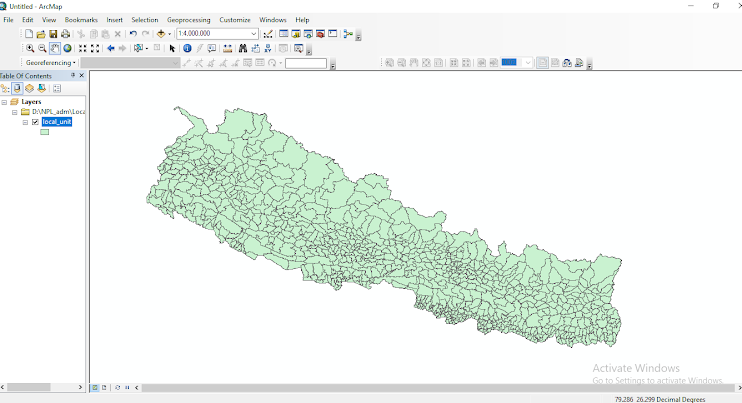GIS is a
booming industry today. As it is implacable in many industries like marketing,
surveying, urban planning, transportation, telecommunications, health, real
estate, environmental protection, disaster management, agriculture, geology,
geosciences, geophysics and etc.
For many decades,
GIS has evolved from a basic concept to a science.
In the early
stage when the system is launched it only included researches by the academic
community.
The tremendous evolution of GIS from a basic
tool to a modern and most powerful platform for understanding and planning all
over the world is marked by several major highlighted milestones.
Later, the
National Center for Geographic Information and Analysis introduced research on
key geographic information science topics such as spatial analysis and
visualization.
Spatial
analysis is very important term which lets you to evaluate suitability and
capability, estimate and predict, interpret and understand, and much more, along
with developing a new perspective to your insight and powerful decision-making.
As a result,
careers in GIS are in demand more than ever.
Due to its
wide range of application, it has become one of the basic and most used
information systems in today’s world.
Generally,
Geographic Information System is a computerized framework which helps in
modeling, interpretation, visualization of any geographical data in any
particular field.
GIS
technology applies geographic science along with tools for understanding and
collaboration.
It helps
people reach a common goal and to gain actionable intelligence from all types
of data.
Just for an
example, you are a geologist and you need to prepare a report of any particular
field. What you do first?
First you
definitely study that area then you collect the data (surveying) and then you finally
analyze the collected data.
So to
analyze the data you need a system to interpret your data first and then you
move towards further task.
GIS
professionals qualify for occupations in countless fields as it has the wide
range of the applications.
According to
the nature of the survey and collected data, you can simply interpret,
visualize, analyze the data using information software like GIS and can produce
the outcome/result of the project.
The basic
but the most important thing you need to know about the example is that GIS is
not a career.
GIS is a
knowledge or information that is just applicable in certain majors like geology
in this case.
People do
masters, diploma in GIS and it is good for them but taking GIS as a career is
turning out to be the major drawbacks.
If you are a
geologist/geoscientist and you know how to use GIS in your field then it is
always plus point (advantage) for you as you are always considered as a serious
candidate in your particular field.
Similarly,
in the case you are the GIS expert but not a geoscientist, then the chances you
get is comparatively less in that field.
The demand of geoscientists is increasing day by day and it is very important for these geoscientists to know GIS as to boost their career.

Comments
Post a Comment